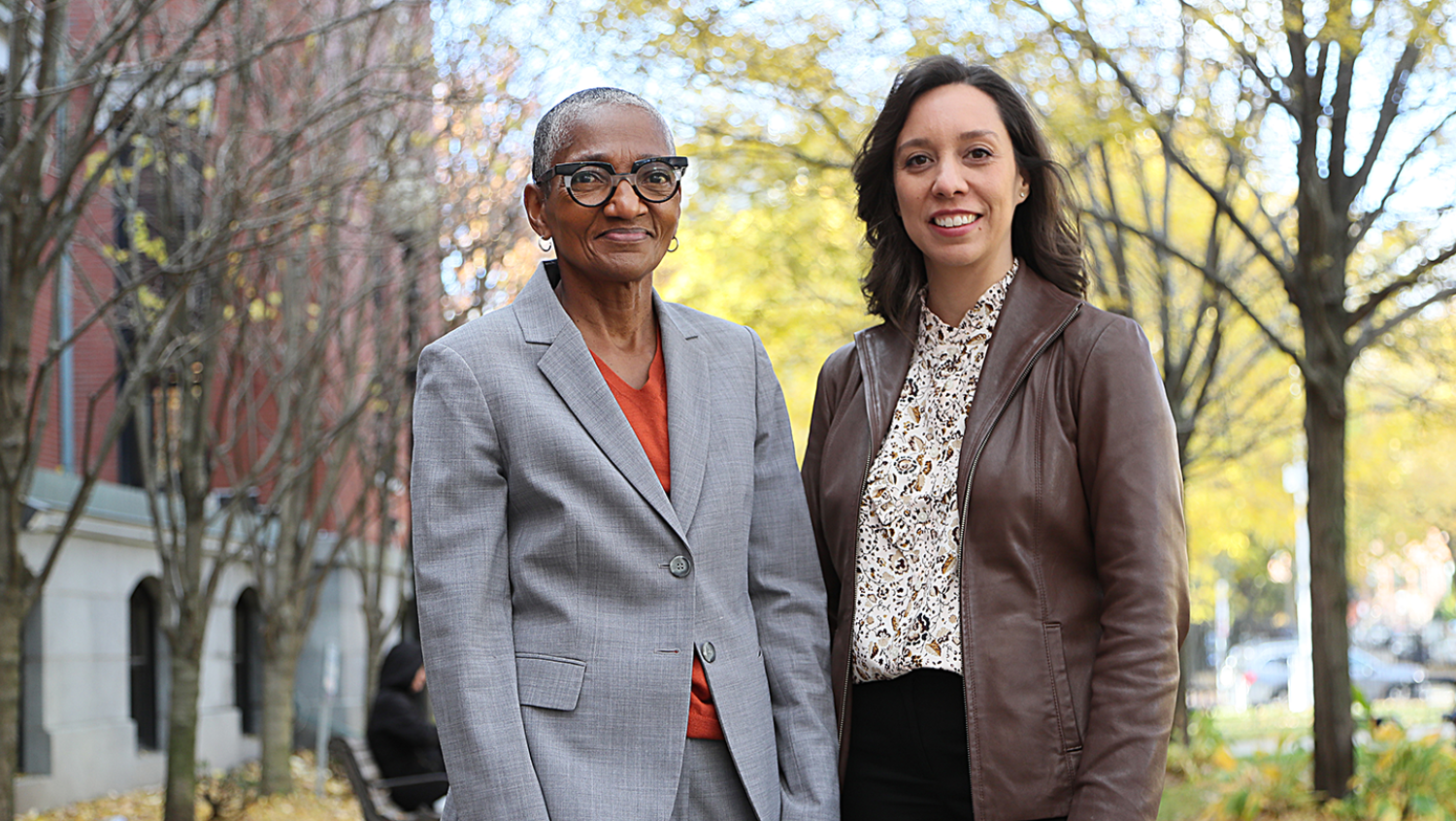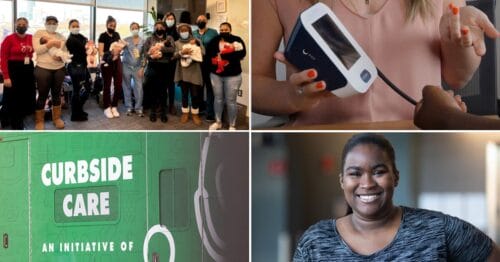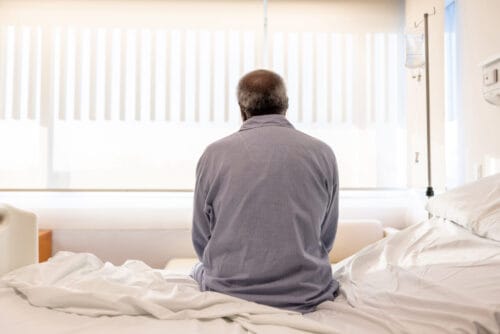EQTY 2023 Summit Will Convene Health Justice Leaders Who Are Sparking Innovation
August 10, 2023

Boston Globe, Getty Images
Boston Medical Center Health System's inaugural health equity conference will drive the conversation around closing care gaps and building an equitable health landscape.
On September 14, 2023, Boston Medical Center Health System (BMCHS) will host EQTY 2023: A Summit for Health Justice at the Artists for Humanity EpiCenter in Boston . During this inaugural conference, BMCHS, with leaders from BMC’s Health Equity Accelerator, will provide a platform for clinicians, hospital leaders, community organizations, and payers from around the country discuss their experiences and share expertise in advancing racial health equity in their communities.
EQTY 2023 will feature a keynote address from accomplished medical ethicist, editor, and author Harriet Washington; six innovation spotlights from individuals who will share their cutting-edge solutions that target racial inequities in crucial areas; and four panel discussions:
- Pathway to Prosperity: Empower Black Economic Mobility
- Racism in Pregnancy: Practical Solutions from Health Equity Leaders
- Health Equity Foundations: The Community in the Driver’s Seat
- Equity in Diabetes: An Action-Oriented Conversation
To learn more about EQTY 2023, HealthCity spoke with co-executive directors of the Health Equity Accelerator, Thea James, MD, and Elena Mendez-Escobar, PhD, MBA. James and Mendez-Escobar shared their excitement for the summit, its importance, and their hopes for its impact on driving the future of health equity.
HealthCity: Why are you hosting the EQTY 2023 summit now? Why is it so important?
Elena Mendez-Escobar, PhD, MBA: Racial equity for Black and Hispanic/Latino/a patients has become a priority for many healthcare organizations, as well as for the country. People want to do something, but many don’t know what to do or how to do it. In holding this summit, we’ll explore all the latest innovations in health equity from BMCHS and other systems. We want to give attendees concrete, actionable interventions they can take to advance racial equity in their own systems and communities. In addition to the content, the other value of the summit is networking. We want to create connections between people and institutions so they can learn from each other.

Thea James, MD: As we enter year two of our Health Equity Accelerator, we are beginning to see some outcomes of our approach to equity, and they’re trending in a positive direction. For example, we’ve made changes in our diabetes program that are showing positive outcomes: We’ve hired navigators who are culturally and lingually concordant with their patients, and we’ve started using a continuous glucose monitoring program. The majority of patients enrolled in that program have already seen meaningful reductions in their hemoglobin A1C after a few months. In addition, since implementing innovations in our maternal-child health program, our readmission rate for postpartum hypertension has gone down by about 20% in just a year.
The summit gives us an opportunity to share successes like these and to learn what others around the country are doing. I think it will be helpful for attendees to learn how others are doing this work because so many people don’t know where to start.
“We want to give attendees concrete, actionable interventions they can take to advance racial equity in their own systems and communities”
I also feel like there are foundational reasons for having the summit. For example, many people don’t recognize inequities to begin with because the inequity appears “normal” to them. So, they may not understand that you need to find and address the roots of inequities before you can start changing them. I’m hoping that the people and organizations who have had success in this space will be able to show others how, when you address those roots, you actually can change the inequity.
HC: Why is it important for health systems to continue to talk about racial health equity?
TJ: What we’re doing is transforming a narrative that goes deep. Especially for Black and Brown patients, the dominant narrative has been that their outcomes are bad, their situations are bad, and it’s very predictable. And the story goes that a big part of the reason for their bad outcomes is that they don’t work as hard, they don’t try as hard, or they’re not as smart. It’s so important for people to recognize that inequities are actually at the root of the problem, driving many perpetually poor health outcomes. We cannot stop talking about racial equity because it is far too nascent to abandon the idea and assume that people get it. The dominant narrative has been going on for so many decades, and we’re far too early in this process to stop talking about it and changing people’s mindsets.
EME: Like Thea said, as long as the gaps in the health outcomes keep happening, we need to keep talking about it. We need a more complex, actionable understanding of what’s happening to drive inequities, and at least a couple ideas for concrete interventions that people can take to their own organizations to work on.
HC: What are you most looking forward to about the EQTY 2023 summit?
EME: I’m excited to hear our keynote speaker, Harriet Washington. She wrote the foundational book about the history of racism in medicine in America, Medical Apartheid, and it’s a great way to kick off this conversation and understand the historical reasons why we’re here.
I’m also looking forward to the “Innovation Spotlights” session to learn more about what others are doing, so we can bring those ideas to our patients as well.
“We do have pathways forward, and with the right partnerships, policies, and investments, we can make this happen. Change is possible.”
And I’m looking forward to getting people excited to invest in health equity once they see that we are starting to learn how to tackle the problem, and the innovations we are trying are really working. We do have pathways forward, and with the right partnerships, policies, and investments, we can make this happen. Change is possible.
TJ: Like Elena, I’m looking forward to seeing people feeling excited, charged, and empowered to go out and be actionable and to employ some of the interventions they learn about at their own organizations. I’m also excited about making new relationships and building opportunities to partner with people. And I’m hoping that the summit will inspire funders to get behind this work and enable the dissemination and scaling of it.
To see more information and register for the EQTY 2023 summit, visit its homepage.


